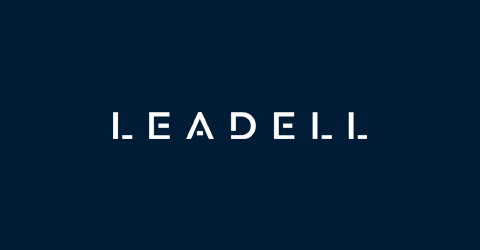Best E-commerce & Internet Law Lawyers in Vilnius
Share your needs with us, get contacted by law firms.
Free. Takes 2 min.
List of the best lawyers in Vilnius, Republic of Lithuania
About E-commerce & Internet Law in Vilnius, Republic of Lithuania
E-commerce and Internet law in Vilnius, Lithuania, is part of a rapidly evolving legal landscape that governs online business transactions, digital communication, data protection, and privacy concerns. As Lithuania is part of the European Union, its legislation adheres to EU directives and regulations. This includes the General Data Protection Regulation (GDPR), which plays a significant role in shaping how e-commerce businesses operate, ensuring the protection of consumer rights, and maintaining fair trading practices.
Why You May Need a Lawyer
Engaging a lawyer familiar with e-commerce and internet law can be crucial for several reasons. Common situations that necessitate legal help include:
- Ensuring compliance with local and EU regulations, such as GDPR.
- Drafting terms and conditions, privacy policies, and user agreements for online platforms.
- Addressing issues related to intellectual property rights, such as copyright and trademark infringements.
- Handling disputes related to online transactions, consumer protection, and liability.
- Advising on cybersecurity and handling data breaches.
Local Laws Overview
Several key aspects of local laws in Vilnius are relevant to e-commerce and internet law:
- Data Protection: Lithuania follows the GDPR, which sets strict rules on data processing and consumer data protection.
- Electronic Communication: The Electronic Communications Law regulates online and telecommunication activities, ensuring privacy and fairness in digital interactions.
- Consumer Rights: The Consumer Rights Protection Law ensures that consumers have adequate protection when engaging in transactions online, dealing with refunds, returns, and disputes.
- Intellectual Property: Laws are in place to protect IP rights, including patents, trademarks, and copyrights, to safeguard against unauthorized use or infringement.
- E-commerce Transactions: Lithuanian laws mandate transparency and fairness in how transactions are conducted, ensuring contracts are honored and disputes can be resolved efficiently.
Frequently Asked Questions
What is the GDPR, and how does it affect my e-commerce business?
The GDPR is a regulation by the EU aimed at protecting personal data privacy. It affects your e-commerce business by imposing strict rules on data collection, storage, and processing, requiring you to maintain transparent data practices and secure user consent.
Do I need to have a terms and conditions page on my e-commerce site?
Yes, a terms and conditions page is essential as it establishes the rules users must agree to when using your site. It helps protect your business from potential legal disputes and outlines user rights and obligations.
How can I protect my online business's intellectual property?
To protect your intellectual property, you can register trademarks, copyrights, and patents that cover your business’s brand, content, and inventions. Additionally, monitor for any unauthorized usage and consult a lawyer for enforcement actions if necessary.
What steps should I take in case of a data breach?
In case of a data breach, you should immediately assess the impact, notify affected users, and report the breach to Lithuania’s State Data Protection Inspectorate within 72 hours. Implement measures to mitigate the breach and prevent future incidents.
How are consumer rights protected in Lithuanian e-commerce law?
Lithuanian e-commerce law, aligned with EU regulations, safeguards consumer rights by ensuring fair terms, transparent fees, the right to withdrawal, and options to dispute and resolve issues.
Is it necessary to obtain user consent for cookies on my website?
Yes, visitor consent is required for the use of non-essential cookies, which track user behavior. Providing clear information and options for managing consent are necessary under GDPR obligations.
What is the role of the Electronic Communications Law?
The Electronic Communications Law regulates telecommunications and internet services, ensuring privacy, security, and fair practices in digital communications within Lithuania.
Can I sell goods internationally through my Lithuanian e-commerce website?
Yes, you can sell goods internationally, but you'll need to familiarize yourself with the tax implications, shipping regulations, and foreign consumer protection laws.
What are the implications of non-compliance with e-commerce laws?
Non-compliance can result in fines, legal disputes, and damage to your business reputation. It’s essential to ensure that your operations adhere to all relevant legal requirements.
Who regulates e-commerce activities in Lithuania?
E-commerce activities are primarily regulated by the State Consumer Rights Protection Authority and the State Data Protection Inspectorate, along with compliance under EU laws.
Additional Resources
For those seeking further assistance, consider consulting:
- State Consumer Rights Protection Authority: Governs consumer rights and disputes.
- State Data Protection Inspectorate: Handles issues surrounding privacy and data protection.
- Lithuanian Bar Association: Helps find qualified legal professionals in e-commerce and internet law.
- Enterprise Lithuania: Offers resources for entrepreneurs needing advice on starting and managing online businesses.
Next Steps
If you need legal assistance in e-commerce and internet law, start by identifying your specific needs. Approach a qualified lawyer specializing in this field by contacting the Lithuanian Bar Association or seeking recommendations. Ensure you have all necessary documents and a clear understanding of your issues before consulting with legal professionals to optimize the advice and services you receive.
Lawzana helps you find the best lawyers and law firms in Vilnius through a curated and pre-screened list of qualified legal professionals. Our platform offers rankings and detailed profiles of attorneys and law firms, allowing you to compare based on practice areas, including E-commerce & Internet Law, experience, and client feedback.
Each profile includes a description of the firm's areas of practice, client reviews, team members and partners, year of establishment, spoken languages, office locations, contact information, social media presence, and any published articles or resources. Most firms on our platform speak English and are experienced in both local and international legal matters.
Get a quote from top-rated law firms in Vilnius, Republic of Lithuania — quickly, securely, and without unnecessary hassle.
Disclaimer:
The information provided on this page is for general informational purposes only and does not constitute legal advice. While we strive to ensure the accuracy and relevance of the content, legal information may change over time, and interpretations of the law can vary. You should always consult with a qualified legal professional for advice specific to your situation.
We disclaim all liability for actions taken or not taken based on the content of this page. If you believe any information is incorrect or outdated, please contact us, and we will review and update it where appropriate.














